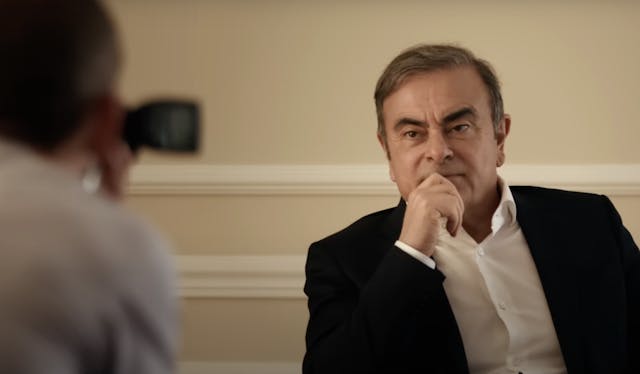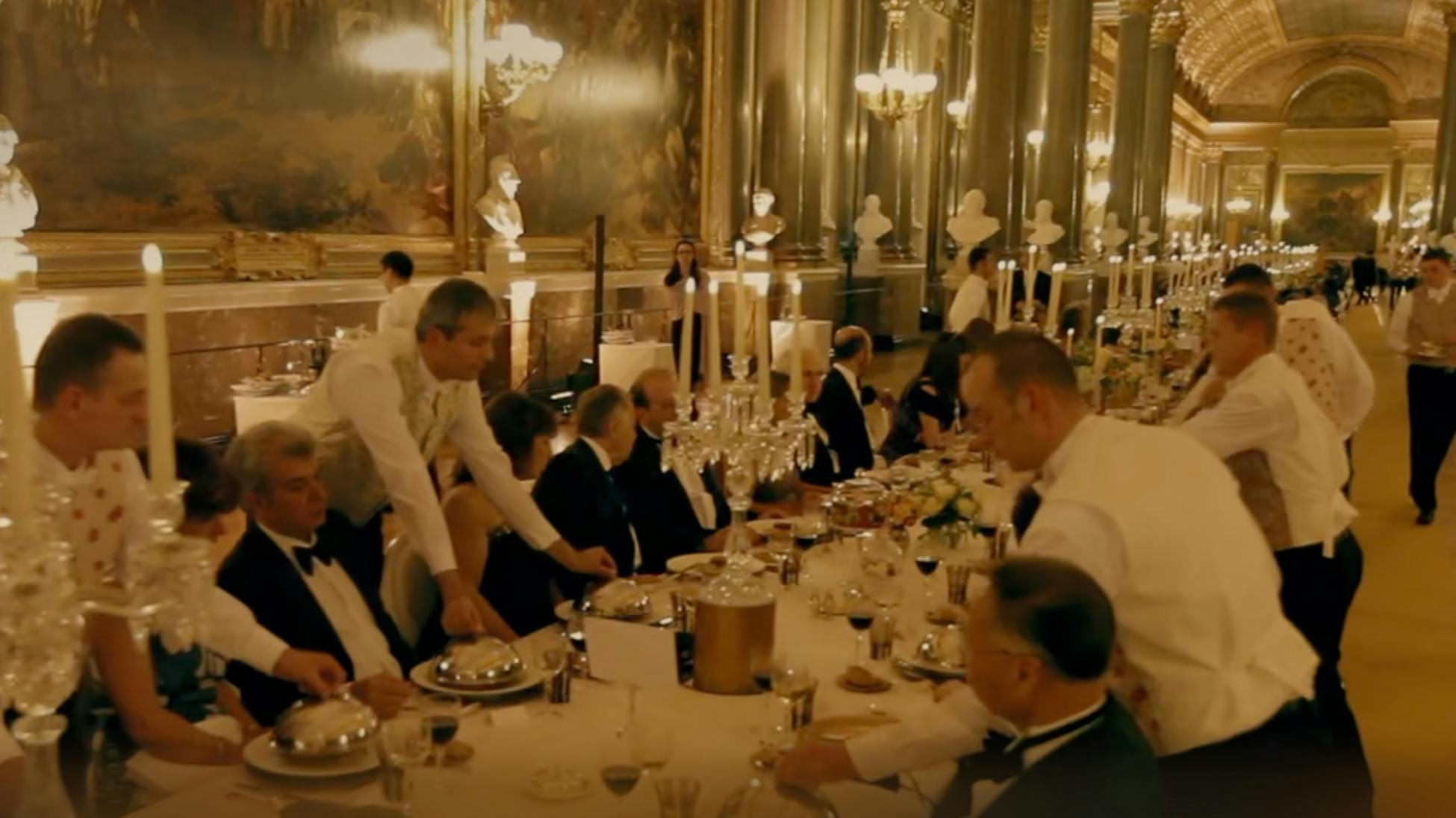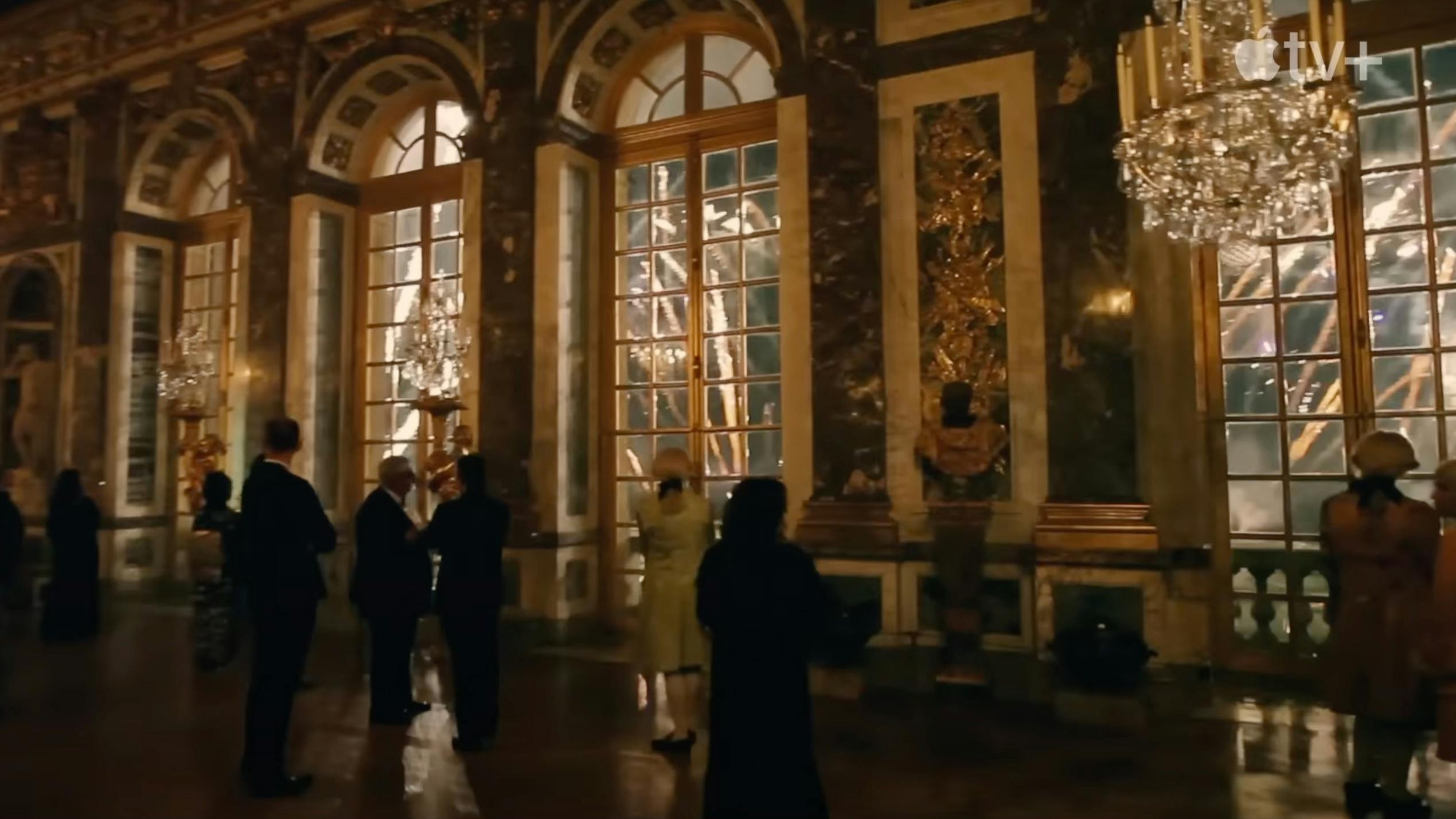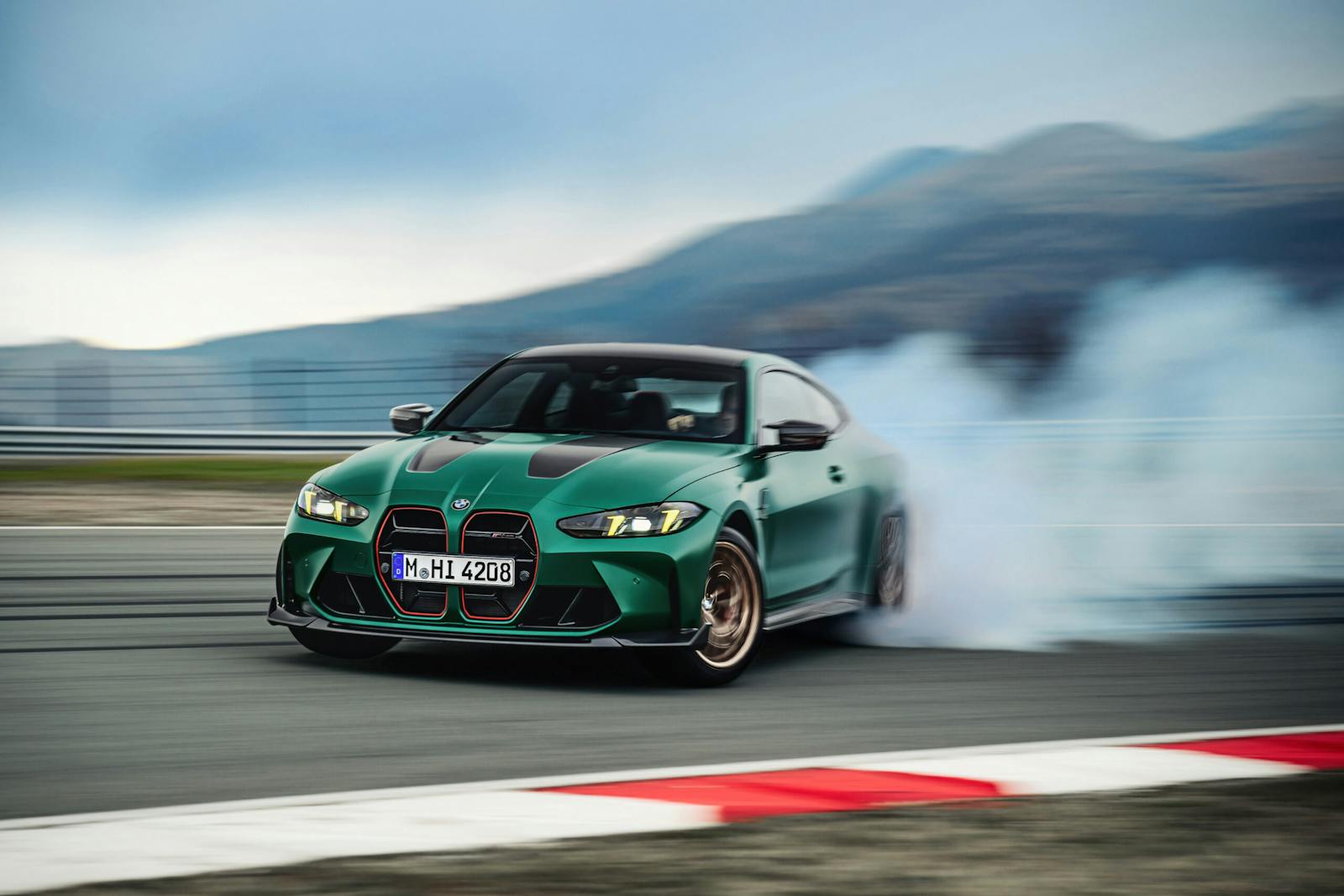Wanted: The Escape of Carlos Ghosn paints a stark picture of greed and escape
“Who is the victim?” asks Carlos Ghosn. “It’s me.”
Yes, poor Carlos, the former CEO of Nissan and Renault. And for the first three of four episodes of Wanted: The Escape of Carlos Ghosn, it could be true.
Then, in episode four, director James Jones drops the hammer on Carlos’ head. There are several victims, sure, but Carlos Ghosn is not among them.
The docudrama, now playing on Apple TV+, is at times tedious but never uninteresting, though it might have been served better with three episodes instead of four. If you make it through those first three, however, by all means watch the fourth. You’ll feel a bit had for buying into three episodes’ worth of Ghosn’s “poor-me” routine, only to have the tables turn in the conclusion. (His second wife, Carole, co-stars and sings a slightly different verse of Ghosn’s song.)
There’s no argument that Ghosn, just as he had done at Michelin, gave Renault a boost and arguably saved Nissan. He did it largely by trimming; he was called Le Cost Cutter in France. He was not, based on my very limited experience with him, a particularly savvy product guy. All that said: Did he deserve to be blindsided by Nissan’s case against him, which landed him in jail?

Ghosn’s excesses are well documented. Looming large is a party he threw that was supposedly in honor of the 15th anniversary of the coupling of Nissan and Renault, held at Versailles with a Louis XIV theme, which we’re told cost about $750,000, but that seems low. Ghosn hosted a lot of friends and relatives, but virtually no business associates, which you’d think he might have included. The media loved to talk about the party, which Carole complained was “petty” of them. Nissan and Renault, of course, picked up the tab.
Ghosn blames the fact that he was planning a formal merger of Nissan and Renault (Renault owned 37 percent of Nissan), which Nissan executives did not want, as one reason for the “fake” charges the company leveled. But the real reason was that, during the recession, Ghosn had to cut his own salary from $20 million a year to $10 million. Calling it “deferred compensation,” he and a Nissan executive are said to have cooked up a way to pay Ghosn millions more, ostensibly after he retired. And there is apparent evidence that, separately, Ghosn funneled $50 million from the company and back into his own pockets.

The financial bits essentially fill episodes one and two. The payoff in episode three is a nuts-and-bolts explanation of how Ghosn escaped from Japan, where he was out of jail on $4.5 million bail. Former U.S. Green Beret Michael Taylor, who has ties to Lebanon, planned and personally orchestrated Ghosn’s escape. Taylor acquired a large, rolling musical instrument case, drilled holes in the bottom so Ghosn could breathe, and spirited the multi-millionaire out of his apartment, onto a train, and onto a private jet that Taylor had hired.

It was brilliant. Ghosn climbed from the box in Lebanon—he grew up there, a country with no extradition to Japan—and promptly phoned his pal, the president of the country, to let him in on the scheme. There Ghosn remains.
“I didn’t flee from justice,” he says, in a well-practiced line. “I fled injustice.”
Japan in general, and Nissan in particular, did not see it that way. They weren’t amused by the escape as the rest of the world. Nissan’s attorneys promptly shared their investigation with Renault, which launched its own investigation, and it revealed similar anomalies. Then there is the matter of a hard drive once maintained by Ghosn’s late attorney, the contents of which “shock the conscience,” according to a lawyer for Renault. That company and Nissan issued an “international” arrest warrant for Ghosn, but he’s safe for the time being Lebanon.

The escape gave Ghosn “another chance at life,” he says, and not a terribly bitter one by the looks of it. He is apparently stuck in Lebanon, yes, but he is a national hero there. For a man used to trotting the globe in private jets, of course, the situation may seem a bit confining.
I mentioned there were a few actual victims: One is Greg Kelly, the Nissan head of human resources, who was told by his boss, Ghosn, to help draft the “delayed compensation” scheme. The other two are Michael Taylor and his son, who helped with the escape. Not only did Ghosn fail to pay the Taylors’ operational expenses, he ultimately left Michael stuck with $1 million in legal bills. Kelly and the Taylors spent far more time in jail than Ghosn.
Wanted: The Escape of Carlos Ghosn is a tale with a clear perspective, well-told and with a moral reflecting on the consequences of hubris and greed. Now, we wait for the inevitable feature film.
***
Check out the Hagerty Media homepage so you don’t miss a single story, or better yet, bookmark it. To get our best stories delivered right to your inbox, subscribe to our newsletters.





There was a documentary series on another platform…Netflix or Prime, I can’t remember which.
That series left me with the idea Goshn did what he did for ego, not the money.
When you get to some point, money becomes irrelevant and who and posterity drives you.
Which if true in this case, is much more compelling than “just” another greed story.*
I would expect you need a psychiatrist more than a forensic accountant here.
*After all, the world is filled with journalists, politicians, academics, and “populists” who think of anyone has more than them, they MUST be crooked (after all, they are themselves as brilliant). So, I look at a lot of rich guy greed stories with a jaundiced eye.
Ghosn’s story is interesting but I can say that under his watch Nissan did not get better, it got worse.
I just finished watching this series 2 nights ago. I’ve also extensively read the Wall Street Journal’s excellent reporting throughout the Ghosn saga.
I think this article left out something very important; something that was another big takeaway from this series. Which is this: Japan’s “justice” system is awful and worthy of scorn and ridicule. The way that system treated Ghosn, the Taylors and Kelly is reprehensible. First, their system is basically guilty until proven innocent. Second, their system is explicitly designed around coercing confession without counsel and also designed to inflict extreme pressure on those who will not submit to confession. Third, their justice system actively conspired with a private company to entrap and ensnare a business leader with initially very flimsy evidence. See Notes (1) and (2) below. Finally, and most importantly, their system is designed around psychological and physical deprivation and borderline torture. The Taylors spoke about this quite extensively in Part 4, which is why I think the series was if anything too short. The Taylors described how their entire time in prison was in solitary confinement. There are humanitarian organizations that consider lengthy periods of solitary as equivalent to torture. The Taylors also described being so cold they nearly got frostbite, being made to tear heavy paper to the point their fingers blistered and bled and not being allowed to get any sort of physical activity/exercise. Both of them were so deprived and malnourished that each lost over 50+ pounds during their sentence. The elder Mr. Taylor was denied even having a short phone call with his father who was dying (and did die) of cancer. This is all absurdly inhumane and was inflicted by a country that we supposedly consider “free.”
I once thought it would be great to visit Japan. Now, I will never attempt to go there. And if this documentary doesn’t convince you of that, also look up how Japan has treated the case of US Navy Lieutenant Ridge Alkonis.
Note (1): During the series, WSJ Report Mr. Sean McLain was asked if there was a Nissan conspiracy to take down Ghosn. I’m paraphrasing here but McLain basically replied, “Of course there was a conspiracy.” It is very important to remember that the INITIAL set of charges concerned an unofficial set of records that detailed unreported compensation that Ghosn felt he was owed or would be owed in the future. This unofficial set of records was the entire basis for the case against Mr. Kelly, which was a total sham. As Kelly repeatedly pointed out, everyone knew (him, Ghosn, Nissan) that this was an unofficial tally and was not considered reportable for taxation because the company had not agreed to it. It was not until LATER that the much more serious evidence was discovered, which means that the reason for Ghosn’s initial arrest was a complete joke.
Note (2): The series reveals that, subsequent to Ghosn’s initial arrest and imprisonment, a laptop was removed from the office of Ghosn’s late lawyer (who presumably died but the documentary does not say when). It was this laptop that turned out to be brimming with seemingly damning evidence of Ghosn’s allegedly illicit and fraudulent transfer of funds through intermediaries to himself. The implied reason for these transfers was that Ghosn was offended and insulted that he had to take pay cuts during the Great Recession. And it is worth noting that the documentary makes zero attempt to examine why attorney-client privilege does not still apply. Nor does it shine a light on how this laptop was obtained or even if it is truly legitimate (nothing to see here!).
At the end of the day having absorbed all of this reporting, yeah, I think Ghosn was probably guilty of good old fashioned theft. It seems that his ego could not take his lower pay level and so he found a way to increase his pay through third party bonus-transfer hijinks. All the rest, including the Versailles party, is just noise. And even if you presume Ghosn’s guilt before it has been proven beyond a reasonable doubt, it in no way excuses or justifies the behavior of Japan’s outrageous “justice” system.
I’ve been struck by the fact that within the space of about a year, Mark Fields got the heave-ho at Ford, Carlos Ghosn got arrested, and Sergio Marchionne died.
“Look on my works, ye Mighty, and despair!”